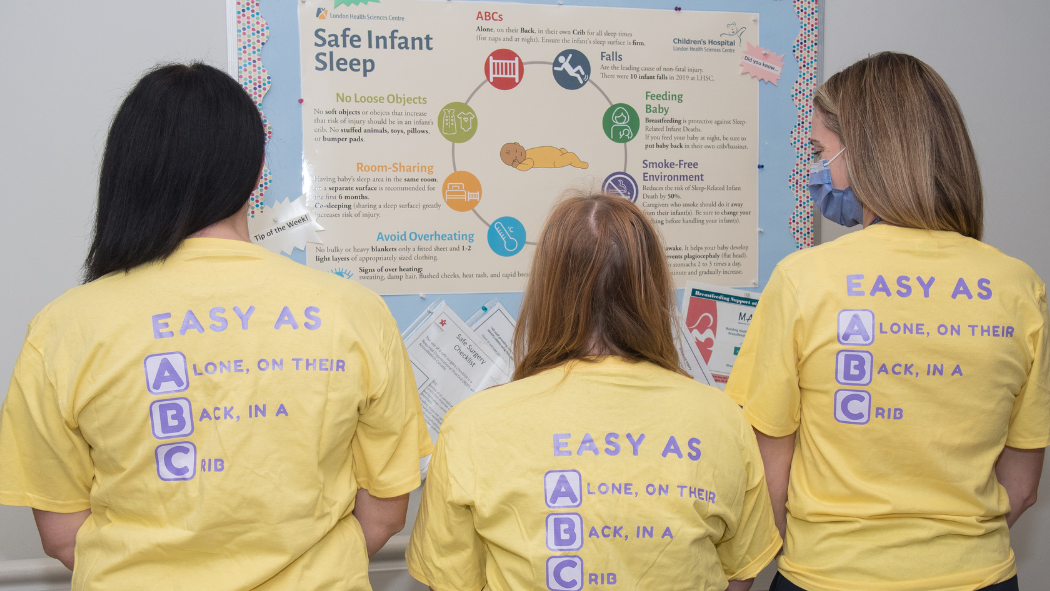
October 12, 2022
London Health Sciences Centre (LHSC) is one of only two hospitals in Canada to hold a Cribs for Kids' National Safe Sleep Hospital Certification for its commitment to keeping infants safe in their sleep environment by reducing as many sleep-related infant injuries and deaths as possible.
"We continue to work to maintain our Silver Certification that ensures LHSC models and teaches safe infant sleep according to current American Academy of Pediatrics (AAP) guidelines," explains Jennifer Britton, Injury Prevention Specialist at Victoria Hospital. "This is an important partnership between Injury Prevention and our Postpartum Care Unit (PPCU), Neonatal Intensive Care Unit (NICU) and Paediatric Inpatient floor. We are very proud of the results we’ve achieved to date as a team.”
Several improvements have been registered since the program's inception in 2019 as observed through crib audits:
- Babies in the safe sleep position increased from 76.2 percent to 92.4 percent.
- Number of loose items decreased from 79.2 percent to 40.2 percent.
- Number of stuffed toys in the crib was reduced by 19.9 percent.
- Number of extra blankets decreased from 69.3 percent to 18.2 percent.
- Number of diapers in the crib reduced by 24.1 percent.
The Safe Infant Sleep Program involves a comprehensive, hospital-wide safe sleep policy for patients under one, availability of wearable blankets or "sleep sacks” instead receiving blankets educational training for the healthcare team on safe sleep guidelines, educational resources for families and caregiver(s), and role-modelling safe sleep behaviours in the hospital.
"Injury Prevention Specialists support the PPCU and NICU with crib audits and education for families on these units,” Britton continues. “The Paediatric In-Patient (B6) floor has also received the ilearn training on safe infant sleep as they see children under one-year on their unit. And the Paeds ED is familiar with the safe sleep policy, and support this safe sleep messaging to families in the ED."
Infants in these units may require alternative sleeping arrangements due to medical reasons, so support in terms of the Safe Sleep Program is essential. "These policies assure parents that their babies are in a safe sleeping environment while in the hospital. They engage in these activities before discharge, as they are more likely to model correct practice if they see it done consistently".
As the program continues to grow, its goals are simple, according to Britton: “We aim for the Gold Standard in the spring or summer of 2023.”
